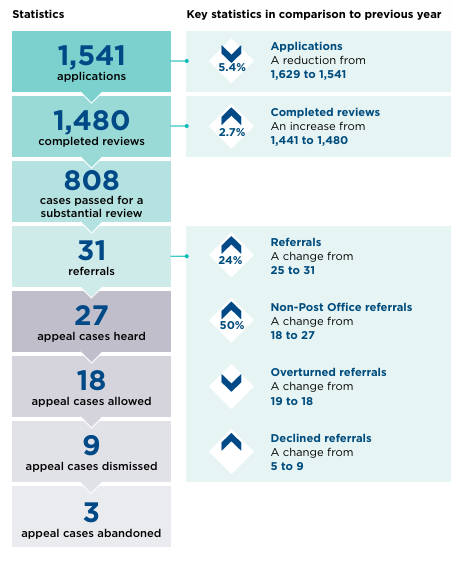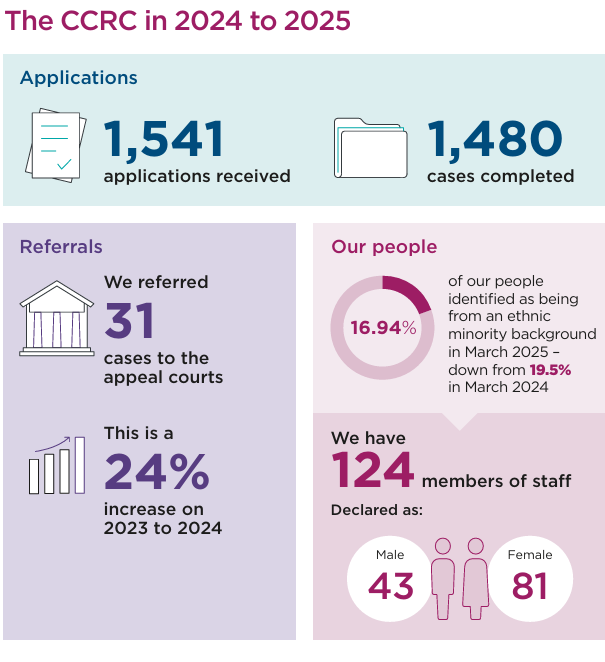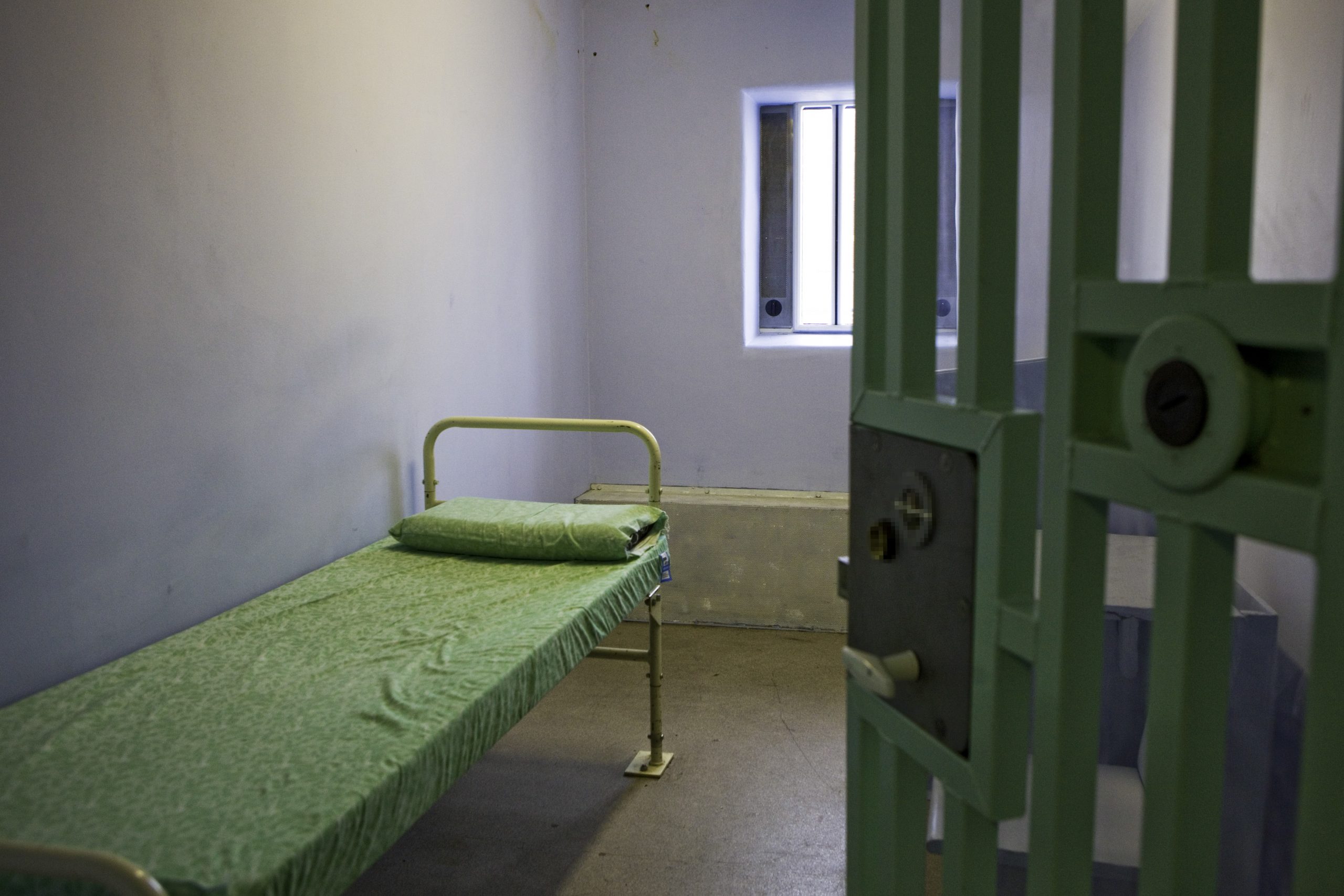The number of cases stuck for more than two years under review at the Criminal Cases Review Commission has topped a hundred for the first time, more than doubling in the last five years.
In the CCRC’s latest annual report published yesterday, the new interim chair acknowledges a ‘massive loss of confidence’ as a result of its mishandling of the Andrew Malkinson case and recognised that ‘other equally problematic cases’ might have been missed. In a frank foreword, Dame Vera Baird says that her role is not only to chair the troubled organisation but to carry out a review of it. ‘We must open every door for the review,’ she says.
Over the last 12 months the CCRC received 1,541 applications and sent 31 cases back to the Court of Appeal – 17 non-Post Office ‘Horizon’ cases. Over the last year, some 18 appeals were successful.
An alarming trend is the growing number of old cases that seemingly stuck in the CCRC. The commission defines a long-running case where there has been a review ongoing for more than two years. At the end of March 2025, the CCRC had 113 long-running cases. The number has been climbing year-on-year – last year it was 99, 55 in 2023 and 43 in 2020 – as the troubled watchdog has seemingly parked complex cases. The CCRC points out that it completed more long-running cases than last year, 70 compared to 55. ‘Unfortunately, the number of new long-running cases was still greater than the number of long-running cases completed.’
The terms of reference of Dame Vera’s new review will include looking at how the organisation evaluates performance and ‘whether the right Key Performance Indicators are in place’. The present KPIs have long been criticised as overwhelmingly directed at the CCRC hitting deadlines (and closing cases down) and having almost nothing to say about the quality of the watchdog’s reviews. The CCRC aims to complete a minimum of 85% of all cases within 12 months of receiving the application.
Fewer than one in 10 applicants had a lawyer (8%) – this is down from 30%. More than one in five applicants (22.5%) described themselves as being from a particular ethnic minority group. People from ethnic minority groups represent 25% of the prison population.
 Writing on her eight day in the new job, Dame Vera recognises that the CCRC is likely to have failed to have referred other cases. She writes that ‘the repeated failure’ by the CCRC to refer Andrew Malkinson’s convictions back to the Court of Appeal has led to ‘a massive loss of confidence, made worse by the inexplicable delay of the Commission’s then leadership to apologise to him and to the public’.
Writing on her eight day in the new job, Dame Vera recognises that the CCRC is likely to have failed to have referred other cases. She writes that ‘the repeated failure’ by the CCRC to refer Andrew Malkinson’s convictions back to the Court of Appeal has led to ‘a massive loss of confidence, made worse by the inexplicable delay of the Commission’s then leadership to apologise to him and to the public’.
She says: ‘Whilst the Commission should not be judged entirely on its few known failures, the concern is that if Mr Malkinson’s case could be missed, other equally problematic cases may similarly be poorly grasped, insufficiently scrutinised and never referred, despite the possibility that they represent a continuing injustice.’
‘The CCRC exists because the criminal justice system is not infallible. It is highly unlikely that the Commission will ever become infallible either, but we must assess every aspect of its functioning to get it as close to that standard as possible. The unjustly convicted, the wrongly sentenced, and the public deserve no less from us.’
Vera Baird
It looks as though the new chair might revisit the CCRC’s controversial remote first working – heavily criticised by the House of Commons’ justice committee. Dame Vera points out that the CCRC’s staff ‘work on a remote-first basis by contract, and thus will continue to do so, almost everyone to whom I have spoken favours more inter-group or thematic real-life contact, at the Birmingham office’.
Support the JG, buy PROOF







